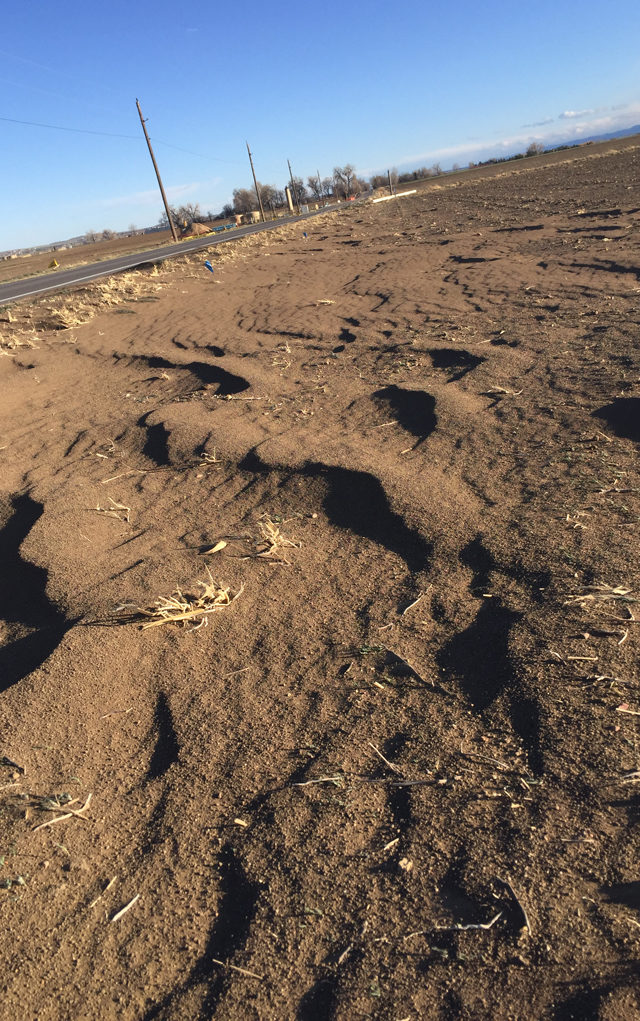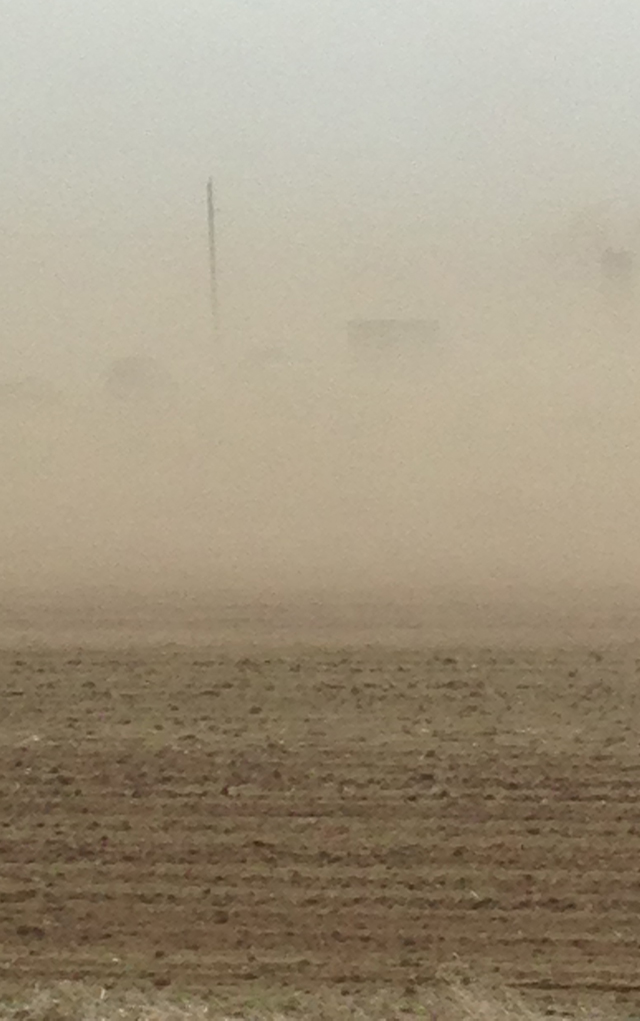
There’s an old saying that history will repeat itself, which is why I encourage folks to visit the Colorado History Museum and check out the Dust Bowl experience room. So let’s dust over a brief history lesson.
Over the 40-year history of the Boulder County open space program, we have acquired 20,000 acres of farmland in eastern Boulder County. These distressed and degraded lands are the home of extractive industrial agriculture (EIA). The widespread practices of EIA have brought us dead zones in the Gulf of Mexico, blue baby syndrome in the Midwest, and desertification right here in Boulder County.
In 2009, County Commissioners, with the encouragement of Colorado State University, wanted to expand the use of GMO crops. Important side note: CSU’s agriculture department gets a fair share of its money from Monsanto and other big corporations pushing EIA. The praises of GMOs come from the same corporate propaganda think-tanks that bring us, “Fracking is good for you!”
But back to our history lesson.
In 2011 there was a 10-hour public comment period at a Commissioners hearing regarding GMOs. As a result of that and other public outcry, the Commissioners decided to limit GMO crops, gather soil health data and report back to the public in a few years. Another note: At the time of this promise, former County Commissioner Ron Stewart was the head of Boulder County’s Parks and Open Space department. Turns out this assurance of collecting data and reporting back was only a half-filled promise. Oops, no soil data.
Five years later in 2016, Stewart retired and Elise Jones and Deb Gardner ran for re-election campaigns based on the promise to phase out GMO crops on our open space lands. But then they awarded CSU the responsibility of leading the transition plan.
In October 2017, after our tax dollars were squandered, the program was scrapped. Also, as you’ll recall in June 2017, the Commissioners adopted a resolution to adhere to or exceed the provisions of the Paris Climate Agreement. In a statement on that promise, Jones said, “If we value leaving a livable planet for our children and future generations, then we must act now.” Perhaps moving away from EIA on open space would be a good place to start.

But alas, the latest folly is explained in the April 12 edition of Boulder Weekly (Re: “With new Carbon farming project, Boulder County could become massive greenhouse gas sponge”) in the form of a feasibility study regarding planting crops for carbon sequestration as opposed to continuing EIA. And you guessed it: it’s being led by CSU.
The last seven years of failed policies have pushed us not to the point of feasibility, but necessity. Let’s distill the last paragraph of BW’s April 12 article. Better yet, I’ll translate it. CSU will gladly squander for the next five years our tax dollars on incremental changes. As you can see, the old game of kick the can down the road has a history here in Boulder County. If this new five-year-long study is adopted, the problem will be passed to the next Board of Commissioners.
But it doesn’t have to be that way. Here’s a common-sense solution:
1. No five-year bleeding of our tax dollars by CSU.
2. Use the already voter-approved sustainability tax money to financially assist the EIA farmers as they transition. Teach them to use cover crops and other regenerative practices that restore soil health and sequester carbon. We cannot do it without them.
3. Hire someone locally who is not affiliated with CSU to spearhead this operation. I can think of several locals that would bring a fresh perspective.
4. None of this will happen unless, all you Flatiron-hiking, mountain-bike-riding stakeholders don’t hold our elected public servants accountable.
Take 5 minutes to email Commissioner Elise Jones at [email protected] and current Parks and Open Space Director Eric Lane at [email protected].
Tell them — unlike fracking in Boulder County — growing cover crops, sequestering carbon and preventing another Dust Bowl are not preempted by the State of Colorado. So what’s the holdup? Stop blowing dust up our butts. We don’t need empty words about climate change. We demand action now. Tick tock.
Rod Brueske and his family grow things out east and are on the receiving end of dust storms and poor soil thanks to EIA and a lack of action by Boulder County.
This opinion column does not necessarily reflect the views of Boulder Weekly.














